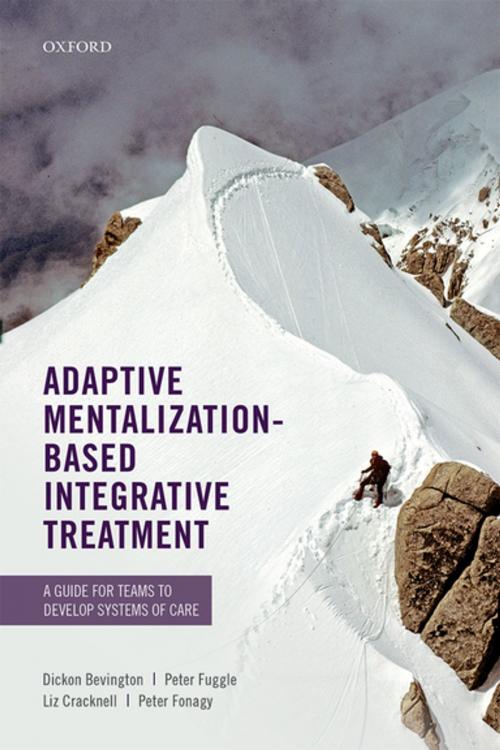Adaptive Mentalization-Based Integrative Treatment
A Guide for Teams to Develop Systems of Care
Nonfiction, Health & Well Being, Psychology, Clinical Psychology, Medical, Social & Cultural Studies, Social Science| Author: | Dickon Bevington, Peter Fuggle, Liz Cracknell, Peter Fonagy | ISBN: | 9780191028816 |
| Publisher: | OUP Oxford | Publication: | August 14, 2017 |
| Imprint: | OUP Oxford | Language: | English |
| Author: | Dickon Bevington, Peter Fuggle, Liz Cracknell, Peter Fonagy |
| ISBN: | 9780191028816 |
| Publisher: | OUP Oxford |
| Publication: | August 14, 2017 |
| Imprint: | OUP Oxford |
| Language: | English |
Socially excluded youth with mental health problems and co-occurring difficulties (e.g. conduct disorder, family breakdown, homelessness, substance use, exploitation, educational failure) attract the involvement of multiple agencies. Poorly coordinated interventions often multiply in the face of such problems, so that a young person or family is approached by multiple workers from different agencies working towards different goals and using different treatment models; these are often overwhelming and may actually be experienced as aversive by the young person or their family. Failure to provide effective help is costly throughout life This is the first book to describe Adaptive Mentalization-Based Integrative Treatment (AMBIT). This is an approach to working with people - particularly young people and young adults - whose lives are often chaotic and risky, and whose problems are not limited to one domain. In addition to mental health problems, they may have problems with care arrangements, education or employment, exploitation, substance misuse, offending behaviours, and gang affiliations; if these problems are all occurring simultaneously, any progress in one area is easily undermined by harms still occurring in another. AMBIT has been designed by and for community teams from Mental Health, Social Care, Youth work, or that may be purposefully multi-disciplinary/multi-agency. It emphasises the need to strengthen integration in the complex networks that tend to gather around such clients, minimising the likelihood of an experience of care that is aversive. AMBIT uses well evidenced ‘Mentalization-based’ approaches, that are at their core integrative - drawing on recent advances in neuroscience, psycho-analytic, social cognitive, and systemic "treatment models".
Socially excluded youth with mental health problems and co-occurring difficulties (e.g. conduct disorder, family breakdown, homelessness, substance use, exploitation, educational failure) attract the involvement of multiple agencies. Poorly coordinated interventions often multiply in the face of such problems, so that a young person or family is approached by multiple workers from different agencies working towards different goals and using different treatment models; these are often overwhelming and may actually be experienced as aversive by the young person or their family. Failure to provide effective help is costly throughout life This is the first book to describe Adaptive Mentalization-Based Integrative Treatment (AMBIT). This is an approach to working with people - particularly young people and young adults - whose lives are often chaotic and risky, and whose problems are not limited to one domain. In addition to mental health problems, they may have problems with care arrangements, education or employment, exploitation, substance misuse, offending behaviours, and gang affiliations; if these problems are all occurring simultaneously, any progress in one area is easily undermined by harms still occurring in another. AMBIT has been designed by and for community teams from Mental Health, Social Care, Youth work, or that may be purposefully multi-disciplinary/multi-agency. It emphasises the need to strengthen integration in the complex networks that tend to gather around such clients, minimising the likelihood of an experience of care that is aversive. AMBIT uses well evidenced ‘Mentalization-based’ approaches, that are at their core integrative - drawing on recent advances in neuroscience, psycho-analytic, social cognitive, and systemic "treatment models".















